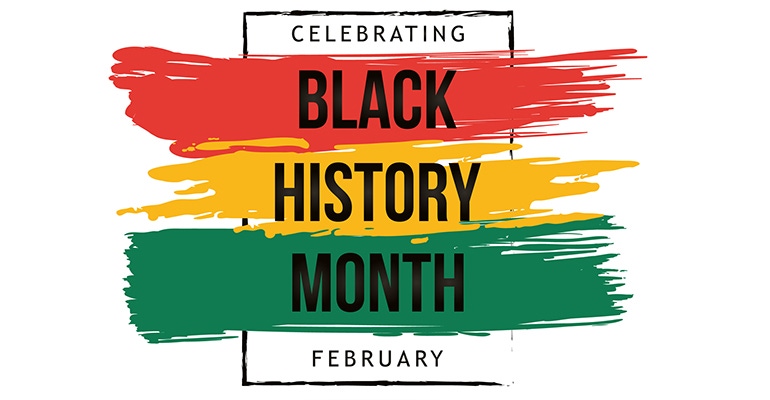With newly opened eyes, sports teams, governments and industries—including the natural products universe—move to fulfill the promise of equality.

Many Americans and American businesses discovered some truths about social justice—or the lack thereof—and systemic racism in 2020.
We saw a white police officer in Minneapolis, Minnesota, kneel on the back of an unarmed Black man, George Floyd, until he died. We learned more about the deaths of other Black people, such as Breonna Taylor and Elijah McClain, and how the police were involved.
Across the country, we saw peaceful Black Lives Matter demonstrations turn to chaos and violence after the sun went down.
We saw business owners in Black- or Hispanic-majority neighborhoods wait for COVID-19-related federal assistance as businesses in majority-white locations quickly received Paycheck Protection Program loans.
But we've also seen progress. This year's Black History Month will be one of firsts:
Our first Black vice president, Kamala Harris.
Our first Black secretary of Defense, Retired Army General Lloyd Austin.
The first Black senator from Georgia, the Rev. Raphael Warnock.
A record number of Black representatives in Congress, 57, plus two Black delegates.
The first Black woman to be a brigade commander at the U.S. Naval Academy, Sydney Barber.
The first Black American cardinal of the Catholic Church, Archbishop Wilton Gregory of Washington, D.C.
The first Black man, Jason Wright, hired as team president in the National Football League.
The first Black female assistant coach, Jennifer King, hired in the NFL.
In the natural products industry—and in the wider food and beverage universe—many brands, retailers and industry leaders are increasing their commitment to diversity and inclusion.
KIND commits to supporting racial equality in education, food and more
KIND Healthy Snacks has formed a partnership with the National Collaborative for Health Equity (NCHE), an organization striving for racial justice to create a more equitable society, to address inequalities that BIPOC people face in justice, education, representation, and food and health care through these actions:
Adopting two historically Black colleges and universities, Florida A&M and North Carolina A&T State Universities; funding $100,000 in student scholarships; creating a program for students to earn internships, participate in career coaching, and network with industry leaders.
Releasing its second annual KIND Equality bar in support of the next generation of changemakers and donating 1 million bars to food insecure communities.
Donating $25,000 to support NCHE leaders addressing food security and injustice in local communities.
Adjusting KIND Kids packaging to be more inclusive and reflect America’s diversity.
Also, the KIND Foundation is donating $100,000 to racial justice organizations such as the NAACP Legal Defense Fund and Equal Justice Initiative.
Big investors in food want manufacturers, retailers to address inequities
In mid-December, investors who belong to the Interfaith Center on Corporate Responsibility asked 21 food companies to consider how their production and marketing practices affect people of color.
The letter, which you can read here, was sent to food manufacturers Campbell's, Coca-Cola, Conagra, General Mills, Kellogg, Keurig Dr. Pepper, Kraft Heinz, Mondelez, Nestle, PepsiCo and Unilever; retailers including Amazon, Kroger and Target; and restaurant chains including Dine Brands (Applebee's and IHOP), McDonald's and Yum! Brands (KFC, Pizza Hut, Taco Bell and The Habit Burger Grill).
The letter points out, with evidence from the Centers for Disease Control and Prevention, that system racism has contributed to the "adverse economic and health impacts on Black, Latinx and Indigenous communities in the U.S." during the COVID-19 pandemic.
It asks the companies for specific data on the percentage of their advertising budgets that each spends to promote healthy and unhealthy products by the targeted racial group, as well as "the impact of their digital-data practices on the marketing of unhealthy products and the disparate health and economic outcomes on Black, Latinx and Indigenous communities, as well as on children under the age of 14," as Bloomberg reported on Dec. 15.
In addition, the investors ask the companies to look at how they influence or engage public policy and work and begin working to ease practices that result in systemic racism.
Many investors who signed on to the letters are religious organizations. Others include Reynders, McVeigh Capital Management, LLC; Dana Investment Advisors; Change Finance, PBC; Natural Investments; and BMO Global Asset Management. In total, the 38 investors involved in this campaign represent more than $2 trillion in assets.
James Beard Foundation launches investment fund to support BIPOC food businesses
From farm to table, the food industry has a long history of racist practices and systems. The James Beard Foundation recognizes not only that systemic racism but its own role in that system.
The Foundation recently created the James Beard Foundation Food and Beverage Investment Fund for Black and Indigenous Americans to help marginalized communities access capital so they can become leaders and business owners in the food industry.
"The James Beard Foundation is committed to celebrating, nurturing, and honoring chefs and other leaders making America’s food culture more delicious, diverse, and sustainable for everyone," the Foundation's website states.
In addition to grants, the program creates partnerships to provide support in such areas as marketing, structuring business plans and negotiating contracts. More information is available here.
More from New Hope Network:
Podcast—Reframing failure and maintaining work-life balance in a chaotic world
3 principles businesses can practice to promote diversity, equity and inclusion
How brands can create a more inclusive supply chain
Natural products industry can do more to connect investors with BIPOC entrepreneurs
How Once Upon a Farm is taking action to improve diversity
Monitor: Coast-to-coast upheaval means brands should listen first
A conversation with Kareem Cook: How the natural products industry can better serve people of color
A conversation with GW Chew: How the natural products industry can better serve people of color
About the Author(s)
You May Also Like




